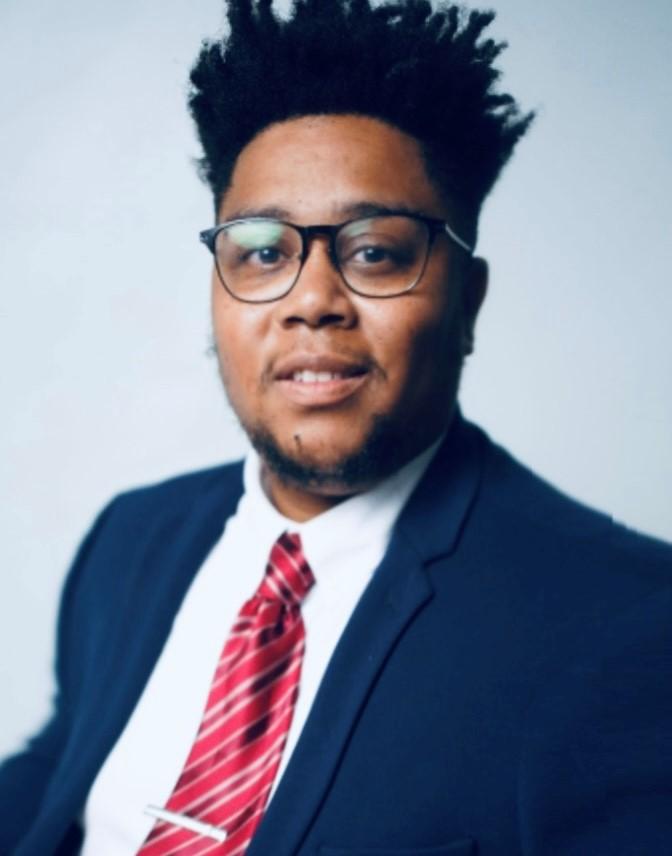Profile: Darrian Dawson
When they come to our Doctorate of Social Work (DSW), candidates already have a wealth of knowledge and experience. We are so grateful for their commitment and are happy to help them advance their practice and leadership. We'd love for you to meet Darrian Dawson (he/him) of Washington, D.C., who graduated from Tulane's DSW program in 2022.
Dawson worked as a Child Welfare Specialist, Resource Specialist, Clinical Therapist, and School Social Worker before deciding to pursue his DSW in 2020. Jumping into doctoral study after almost a decade of professional social work can be intimidating. That's why our DSW program prioritizes community and support.
"My experience at TSSW has been great. The faculty and professors are very helpful, compassionate, dedicated, experienced, and supportive. The professors teach in a way that promotes collaborative learning. They create opportunities for us to make our own discoveries and to find our personal meanings."
Since starting the doctorate program, I am a better person, student, researcher, and social worker.
Darrian Dawson, DSW
At Tulane, we pride ourselves on creating an inclusive and welcoming environment, but social work often necessitates a feeling of discomfort. Our professors are experts at maintaining safe classrooms while fostering personal growth. "In class, the professors challenge our traditional ways of thinking and interacting. Those challenges help us to be more competent and force us out of our comfort zone. In addition, the curriculum is future-focused and the coursework teaches skills that can be applied in practice," Dawson said. "Since starting the doctorate program, I am a better person, student, researcher, and social worker."
What Can You Do With a DSW?
Dawson is the CEO of Darrian Dawson and Associates, LLC, which offers wraparound service to strengthen families, consultation service for individuals and groups, and tutoring service for social workers. "After my first semester at Tulane, I decided to do what I always wanted to do, which was to start an organization and serve the communities I know and love," Dawson says.
Since earning his DSW, Dawson has also authored a workbook, "Self-Care Activity Book for Black and Brown Teens," and served as an Adjunct Professor at several universities.
The career opportunities available for DSW graduates are almost endless, but some examples include:
- Director of Social Work Services: Leading social work departments or programs within healthcare organizations, social service agencies, or community mental health centers, overseeing service delivery, program development, and staff management.
- Clinical Director/Administrator: Managing the operations of clinical programs or agencies, ensuring compliance with regulatory standards, budget management, and strategic planning.
- Policy Analyst/Advocate: Analyzing social policies, advocating for policy changes, and influencing legislative decisions at the local, state, or federal level to address social justice issues and improve social welfare.
- University Professor/Researcher: Teaching social work courses at the undergraduate or graduate level, conducting scholarly research, publishing academic articles, and mentoring students in their academic and professional development.
- Community Organizer/Developer: Collaborating with communities to identify needs, mobilize resources, and develop programs or initiatives aimed at addressing social problems, promoting empowerment, and building social capital.
- Gerontology Specialist: Providing specialized services to older adults and their families, addressing issues related to aging, long-term care, end-of-life planning, and age-related health and mental health concerns.
- Trauma-Informed Care Specialist: Providing trauma-focused interventions, training, and consultation to social service organizations, schools, and community agencies to support individuals and communities affected by trauma.
- Addiction Specialist: Offering specialized services in the prevention, assessment, and treatment of substance abuse and addiction issues, including clinical interventions, program development, and policy advocacy.
- Healthcare Integration Coordinator: Facilitating collaboration and integration of social work services within healthcare settings to address psychosocial factors impacting patients' health outcomes, such as access to care, social determinants of health, and care coordination.
- Nonprofit Executive Director: Leading nonprofit organizations focused on social justice, community development, or human services, overseeing organizational operations, fundraising, program development, and strategic planning.
- Private Practice Clinician: Providing advanced clinical services to individuals, couples, families, or groups in a private practice setting, specializing in areas such as psychotherapy, counseling, or clinical supervision.

